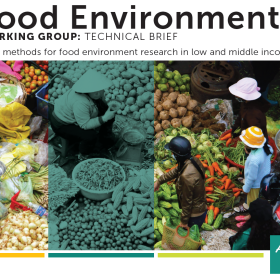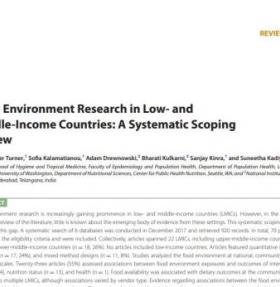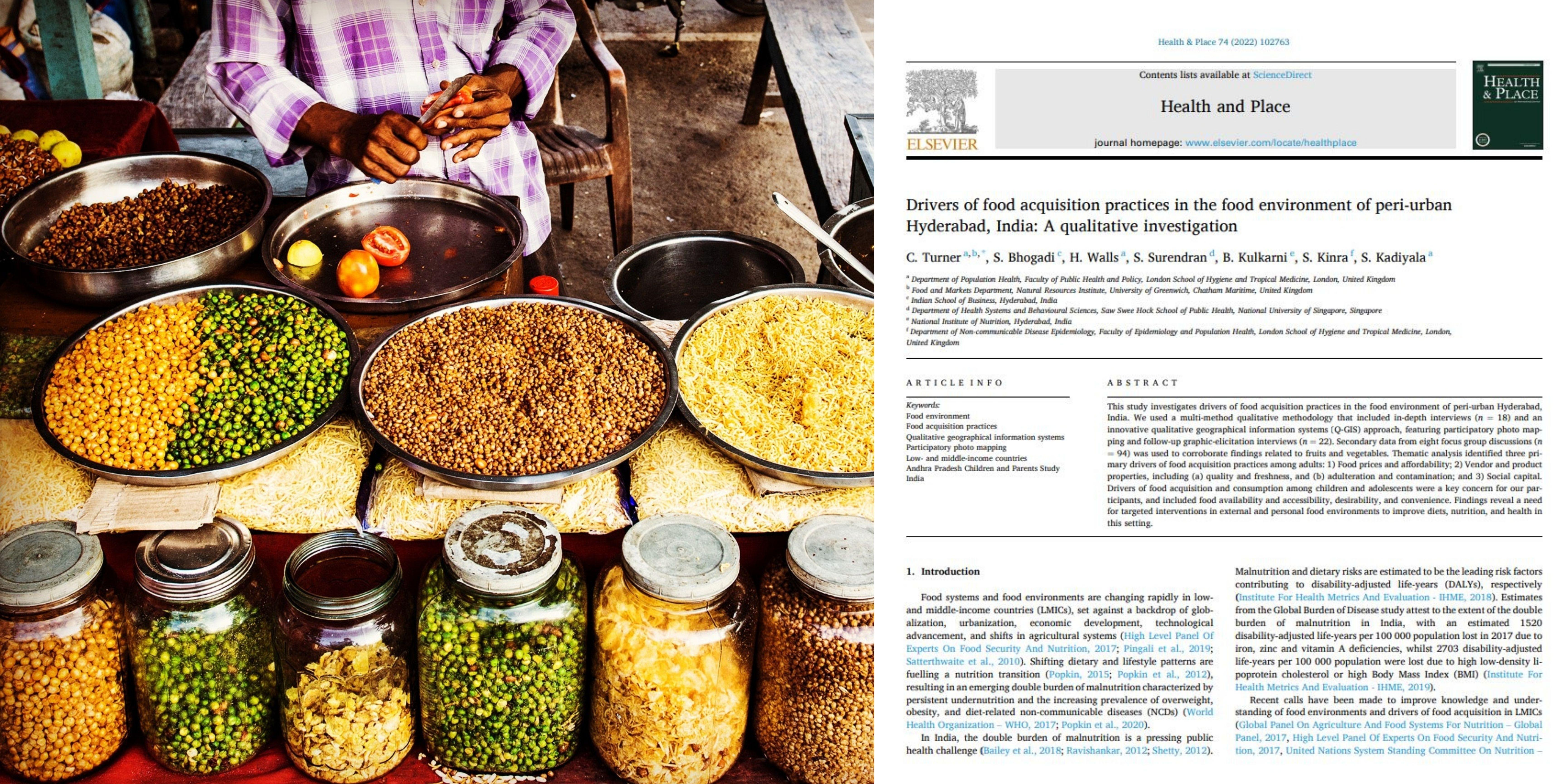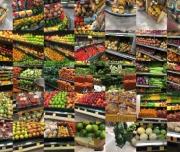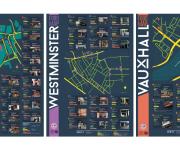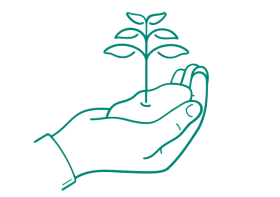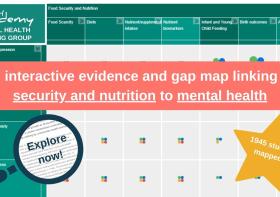Food Environments Working Group
Details
The Food Environments Working Group (2016-2018) brought together experts to develop a new framework for food environments research. Read about how the outputs of this initiative have been adapted, applied and referenced in policy, practice and research.
Check these Food Environments sessions at ANH2023:
Side Event: ANH Academy Food Environment Working Group Consultation: Revisiting the ANH-FEWG Food Environment Framework 27 June 17:00-18:00 Central African Time.
Learning Lab: Food environment methods, tools, and metrics to support healthy diets in low- and middle-income countries 26 June 2023 10:45-14:35 Central African Time.
Click on the PlumX widget below to explore engagement with the food environments framework paper:
Watch the FEWG introduction animation to food environments research:
ANH Academy members have been engaging with the Food Environments framework in a variety of ways. Have you used the Food Environments framework in your research or practice? Please let us know by completing this form.
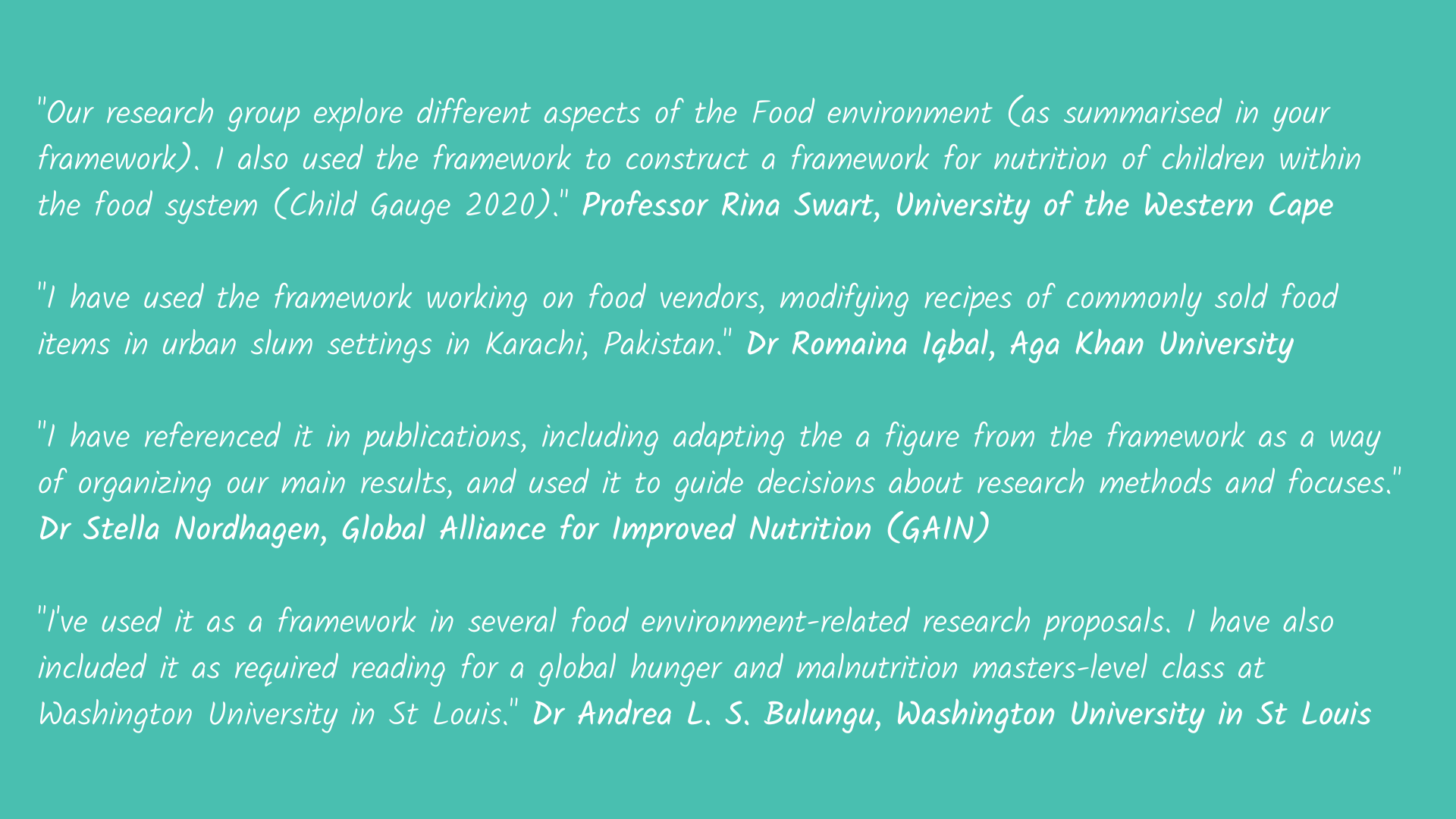

Engagement with policy and practice
-
Africa Food Environment Research Network (FERN) Initiative. The annual FERN conference aims to connect researchers in the African sub-region and Global North whose work relate directly or indirectly to improving food environments in low- and middle-income countries (LMICs). Chris Turner presented the Food Environments framework at FERN 2020. This led to ANH Academy becoming a partner for FERN2021 and ongoing collaboration with FERN.
-
The Innocenti Framework on Food Systems for Children and Adolescents. The United Nations Children’s Fund (UNICEF) and the Global Alliance for Improved Nutrition (GAIN), in partnership with the Ministry of Foreign Affairs of the Kingdom of the Netherlands, co-hosted a global consultation on children, adolescents and food systems at the UNICEF Office of Research-Innocenti on 5–7 November 2018. The consultation brought together 60 participants from government, development partners, business, and academia from low-, middle- and high-income settings. The resulting framework was adapted from the FEWG framework.
-
United Nations System Standing Committee on Nutrition (UNSCN) Vol 44: Food environments: Where people meet the food system. The framework and concept paper developed under the FEWG were featured and discussed in the UNSCN NUTRITION, a publication issued in 2019 by the United Nations System Standing Committee on Nutrition. It provides information on issues of importance to the field of international nutrition, bringing together contributions from actors around the globe.
-
SHIFT framework. The SHIFT framework, led by Meena Daivadanam, was developed by an international team of researchers committed to assisting technical staff such as programme developers and managers to improve health and nutrition equity. Chris Turner was among experts who participated in a Roundtable event December 14, 2020. The SHIFT framework consultation used content from the FEWG framework. WHO announced the launch of the SHIFT framework in 2022.
-
Drivers of Food Choice. A Food Environment working group was established by Drivers of Food Choice programme, co-led by Shilpa Constantinides and Christopher Turner. The group synthesised principal investigator perspectives on the FEWG framework, grounded in the emerging evidence from the 15 DFC projects across 12 LMICs, concluding that “the framework contained breadth and depth of content necessary to identify common drivers – prices and affordability, availability, and vendor and product properties." Findings were published in Global Food Security in 2021.
-
UN Nutrition. UN Nutrition featured a news article “Food Environments in the COVID-19 Pandemic” in 2020, which addressed the possible impacts of the COVID-19 pandemic on food environments. The article featured an adapted version of the FEWG framework outlining the possible impacts. This led to the UN Nutrition study on the impact of Covid-19 on food environments.

Uptake by researchers
-
Strengthening African FOOD Systems in the face of climate change and food insecurity (SAFOODS). 2021-present. This project is funded by FOSC ERA-NET Co-fund on Food systems and Climate (€500,000). PI: Arléne Alpha. Chris Turner leads the qualitative component of work package 1 and uses the framework to guide the research design and analysis.
-
Keeping colour on the plate: Food system disruption and resilience for healthy diets in ASEAN. 2021-present: PI: Jody Harris. The framework has been used to guide the research design and analysis.
-
The FEWG framework informed the analysis of the UN Nutrition study on the impact of Covid-19 on food environments, published in 2022.
-
The EAT-Addis study (2015-2023) PIs: Ekström, L; Jirström, M. The aim of this study was to understand the quality of diet being consumed among families in Addis Ababa, and to what extent social stratification and perceptions of availability and affordability affect healthy food consumption. The framework contributed to the research design and data analysis within the project.
-
Stunting Hub. The GCRF Action against Stunting Hub have created a Food Environment Experience Metric in collaboration with the ANH-FEWG, featuring dimensions from the framework.
-
Global Food Systems, Diets, and Nutrition book. Jess Fanzo and Claire Davis published a book in 2021 aiming to provide readers with an understanding of the landscape of food systems in high-, middle-, and low-income countries, and explain how food policies and interconnected food systems affect the diets and nutrition of populations all over the world. The ANH-FEWG framework is included in one of the chapters.
-
The Food Environment Toolbox project. The Food Environment Toolbox: Tools to Measure Natural and Built Food Environments in Low- and Middle-Income Countries is a 2-year project led by Shauna Downs, funded by IMMANA. The FE Toolbox is unique in its applicability as a guidance protocol for diverse LMIC settings and its inclusion of practical tools for measuring the different dimensions of both the personal and external FE, directly addressing existing gaps in FE scholarship and practice. A paper published by Downs, S. M., Ahmed, S., Fanzo, J., & Herforth in the journal Foods in 2020 provided a food environment typology that includes both natural and built food environments as well as an updated food environment definition relevant to LMIC and sustainable diets. The article referenced all the ANH-FEWG framework and publications. Chris Turner sits on Shauna Downs’ advisory board for the FE Toolbox project.
-
IMMANA Food system plastics research. IMMANA conducts research into the critical linkages between food system plastics and their myriad effects across domains, to better inform evidence for circular food system policies. A framework was developed by adapting the ANH-FEWG framework. Concepts were presented at the FERN meeting 2021, and two papers have been published in Nature Food and BMJ Global Health.
-
Application and adaptation of the framework by researchers:
-
Walls et al., (2020) adapted the framework to create an ‘alcohol environments’ framework.
-
Westbury et al., (2021) applied the framework to guide a systematic review of the field.
-
Granheim et al., (2021) systematic review. The framework provided the departure point and structure for this scoping review of the field.
- Gaupholm et al., (2022) used the framework in the design and analysis of this systematic review.
-
O’Meara et al., (2023) uses the framework to inform the design of this review protocol.
-
Chaudhry et al., (2021) assesses the external domain defined by the FEWG framework.
-
-
IMMANA Food Environments community of practice. A meeting was held on 23rd November 2022 with Chris Turner and IMMANA grantees working on Food Environments research. Researchers shared their ideas and identified areas of overlap. Plans are in place for the community of practice to meet at ANH Academy week 2023.
-
ANH Academy Week Learning Labs. At ANH2016 Chris Turner led a Food Environment Working Group session at the ANH Academy Week in Addis Ababa. The session outlined the socio-ecological framework, definitions from the literature, the FEWG definition and conceptual framework, methodological approaches, and research gaps – most notably LMIC application. The discussion that followed highlighted the potential to include consumer perceptions and behaviour in the analysis and to explore them from an economics perspective. Different frameworks with various perspectives on food environments were discussed including individual level and household level analysis and the potential links with the food security literature.
-
At ANH2020, two Food Environments learning labs took place:
-
At ANH2021, a Food Environments learning lab was held: Food systems and food choice concepts and strategies for promotion of sustainable healthy diets in low- and middle-income countries.
-

Student engagement
-
PhD students are taught and engage with the FEWG framework at the UK Food Systems Centre for Doctoral Training (UKFS-CDT), an interdisciplinary training programme led by the Natural Resources Institute, University of Greenwich and in collaboration with eight leading universities and research institutes in the UK. From 2021 through to 2027, the UKFS-CDT will train over 60 interdisciplinary doctoral researchers capable of leading the UK towards a resilient, healthy and inclusive food future. An introductory lecture on food environments, the FEWG framework and conceptual thinking is taught to these students.
-
The framework is used in postgraduate teaching at Lund University, where Chris Turner is an annual guest lecturer on the course Rural and Urban Development and Livelihoods for the MSc International Development and Management programme (2019-2023).
-
Chris Turner also uses the framework in his supervision and advisory roles with students studying food environments across diverse contexts:
-
PhD supervision:
-
2022: Leah Salm, UKFS-CDT, NRI, University of Greenwich (Primary supervisor).
-
2022: Olive Zgambo, UKFS-CDT, Centre for Food Policy, City University, London (External supervisor).
-
2021-present: Ebunoluwa Awotunya, NRI, University of Greenwich, UK (Secondary supervisor).
-
2021: Leah Salm, NRI, University of Greenwich (UKFS-CDT Project kernel supervisor).
-
-
Advisory roles:
-
2022-present: Harry Campbell-Ross, Australian National University, AUS, (Advisory Committee).
-
2022-present: Esther Choo, University of Washington, USA (Advisory Committee).
-
2021-present: Angela Kounnavong, Nagasaki University, Japan (Advisory Committee).
-
2020-present: Lydia O’Meara, NRI, University of Greenwich, UK (Advisory Committee).
-
-
The Food Environments animation has been used in a MOOC developed by WUR, with over 5,000 views.
-
Through the support of LSHTM’s Public Engagement Scheme, in 2019 the ANH Academy worked with students from Grey Coat School in London to test food environment research methods on the ground in London. Chris Turner introduced a session whereby the students presented their geospatial maps; highlighting the main findings, reflecting on the exercise and discussing what can be learnt from employing food environment research methods in urban settings.
Members
Coordinators:
- Chris Turner, PhD Candidate, London School of Hygiene & Tropical Medicine
- Suneetha Kadiyala, Associate Professor of Nutrition Sensitive Development, London School of Hygiene & Tropical Medicine
Group members:
- Adam Drewnowski, Professor & Director of the Center for Public Health Nutrition and the Center for Obesity Research, University of Washington
- Anna Herforth, Independent consultant specialising in nutrition and food security
- Anju Aggarwal, Nutritional Epidemiologist, University of Washington
- Corinna Hawkes, Professor of Food Policy, Director, Centre for Food Policy, City University, London
- Helen Walls, Assistant Professor, London School of Hygiene & Tropical Medicine
- Jennifer Coates, Associate Professor of Food Policy and Applied Nutrition, Tufts Friedman School of Nutrition Science and Policy
- Sofia Kalamatianou, Research Assistant, London School of Hygiene & Tropical Medicine
See some of their ANH Academy member profiles below:







